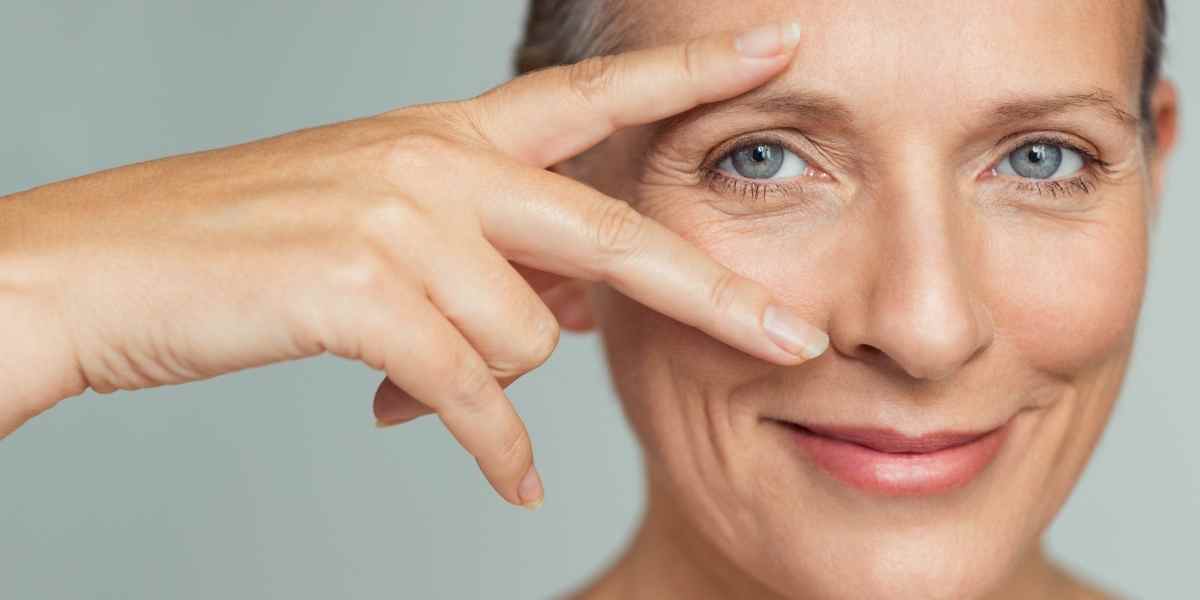There are many myths associated with oily skin. One of them is – “oily skin ages better than any other skin type”.
I have heard a lot of people talk about this from time to time. Just recently, a friend of mine told me that she would rather deal with oily skin, as she would age better if she had oily skin.
So, is it true? Does oily skin age better?
The short answer to your question is that those with oily skin do not age better. They just age differently. Oily skin appears to have lesser wrinkles because oil provides healthy moisture to the skin and gives it a plump look.
Signs Of Aging

There are many other signs of aging apart from having wrinkles. They are –
- large pores on the skin
- thin skin
- skin losing its firmness
- pigmentation
- broken blood vessels
The cause of wrinkles is not oil, but rather the loss of collagen and elastin in the skin as it ages. These fibers are what give skin its strength and elasticity. The most common cause of aging skin is exposure to the sun and lifestyle habits. All skin types are affected by these factors.
Me complaining about my oily face but then remembering that oily skin ages better pic.twitter.com/a0ukt9mxW4
— Ashley (@ashaaaaley) July 11, 2018
How Oily Skin Ages Differently
While there are some advantages to each of our skin types, we don’t necessarily age better or worse. Each of us will require a slightly different approach to maintain our skin.
It’s true that women with oily skin age differently than other skin types, but is it always for the better? Not really.
Dry skin appears to have more wrinkles because it is thinner and has smaller pores. People with dry skin often deal with flaky skin that crinkles. On the flip side, dry skin appears to be smooth.
Oily skin, on the other hand, has larger pores that secrete more sebum due to the presence of a higher number of sebaceous glands.
Sebum provides extra lubrication and emollient protection, which hydrates the skin and leads to younger-looking skin.
The fatty acid composition of the sebaceous gland also protects oily skin from free radical damage and provides extra protection against the sun’s harmful UVA and UVB rays.
So, oily skin appears to have fewer fine lines on the cheeks and forehead, where there are more oil glands. On the flip side, it might have deeper lines on areas of the face that have fewer oil glands, like the lower half of the face.
Studies have shown that the eye area develops fine lines irrespective of the skin type.
Sure oily skin ages better, but temporarily blinding people with the shine on your forehead is the real money shot. pic.twitter.com/pvZAgMRmtI
— Misty B (@Lfeizgud) January 14, 2021
Does Oily Skin Age Better?
To find a truly scientific answer to this question would require us first to define what we mean by “age”.
Do we mean the physical appearance of a person or internal factors that measure aging, like collagen density?
It does appear that oily skin has many factors in its favor to support the fact that oily skin does in fact age better than any other skin type. These are –
- Oily skin people tend to appear more moisturized and youthful.
- Oily skin produces more melanin, which helps to protect the skin from the effects of the sun. The more melanin a person has, the better their skin will protect itself from the damaging effects of the sun.
- It also tends to have a nice glow, unlike dry skin which appears lifeless.
- The hormones that lead to excessive oil production are also related to youth, hence the association with youthful skin.
Though oily skin tends to be less prone to wrinkles and fine lines, it’s not immune from the other effects of aging, such as uneven texture and hyperpigmentation.
Acne scarring is one of the hallmarks of people with oily skin. If you have oily skin, you are more likely to develop acne scarring. Scarring can cause uneven thickness and texture, and post-inflammatory hyperpigmentation, all of which can contribute to a prematurely aged appearance.
Keep in mind that biology is not the only factor that determines how a person’s skin ages. Diet, sleeping habits, hydration, skincare routine, exercise habits, exposure to environmental factors also determine skin aging.
So, although various external factors suggest that oily skin ages better, it is not guaranteed. Regardless of the skin type, one must exercise a healthy lifestyle and follow a dedicated skincare routine to prevent aging.
The Best Things To Do To Prevent Aging For Any Skin Type
There are a few things you can do for any skin type, to keep your skin glowing and not show the effects of aging –
1. Wear sunscreen daily. It will prevent skin cancer, premature aging, as well as the breakdown of collagen.
2. Don’t smoke.
3. Have a healthy meal.
4. Get enough sleep.
5. Use products containing hyaluronic acid, which is known to reduce fine lines.
6. For the wrinkles on the lower part of your face, there is no topical skincare product that can help, because that area is mostly muscular. You can try fillers, lasers, or acupuncture.
7. Use a moisturizer, even if you have oily skin. Many people believe that since their skin is oily, they do not need a moisturizer. That is a myth. Oily skin needs a moisturizer. Choose a lightweight, oil-free, non-comedogenic moisturizer.
8. Drink enough water throughout the day.
9. Don’t over-cleanse and over-exfoliate.
10. Avoid stress.
Takeaway
While aging is inevitable, it’s not something to be ashamed of. It’s actually a good thing, as we come out wiser as we age. That said, no one wants their skin to age faster than they do.
In this post, we busted the common myth that oily skin ages better than other skin types. It just ages differently. No skin type is immune to the effects of aging. In fact, oily skin can be more prone to acne scarring, every girl’s nightmare.
We concluded that though oily skin is not guaranteed to age slower, your skin will thank you for the oil it produces, as it will be thicker and more resistant to the environmental pollutants and harmful radiations of the sun. It will also give you a natural shine and a plump look.
I hope you found the information in this post helpful. You might want to read this post on the benefits of oily skin next.

